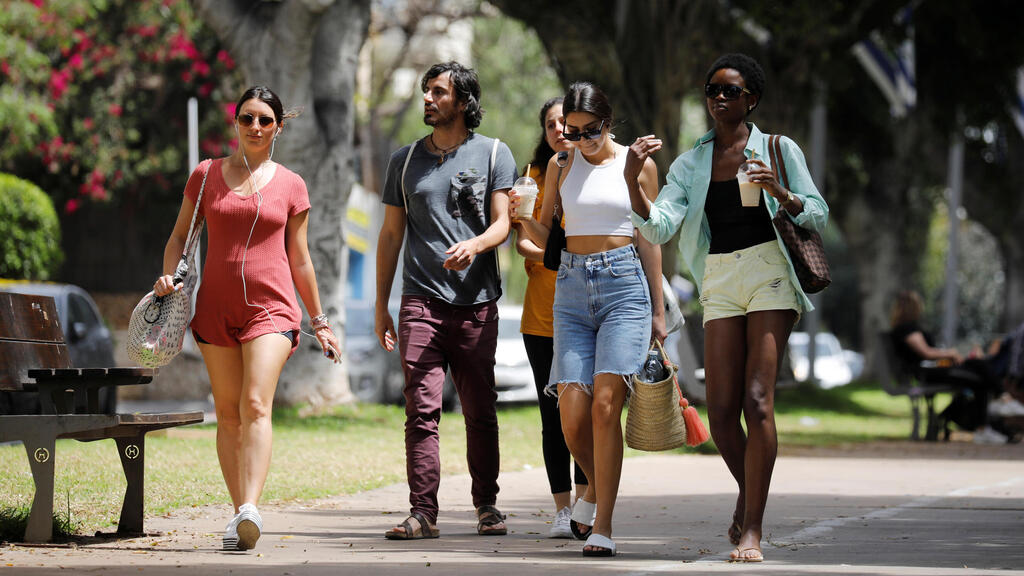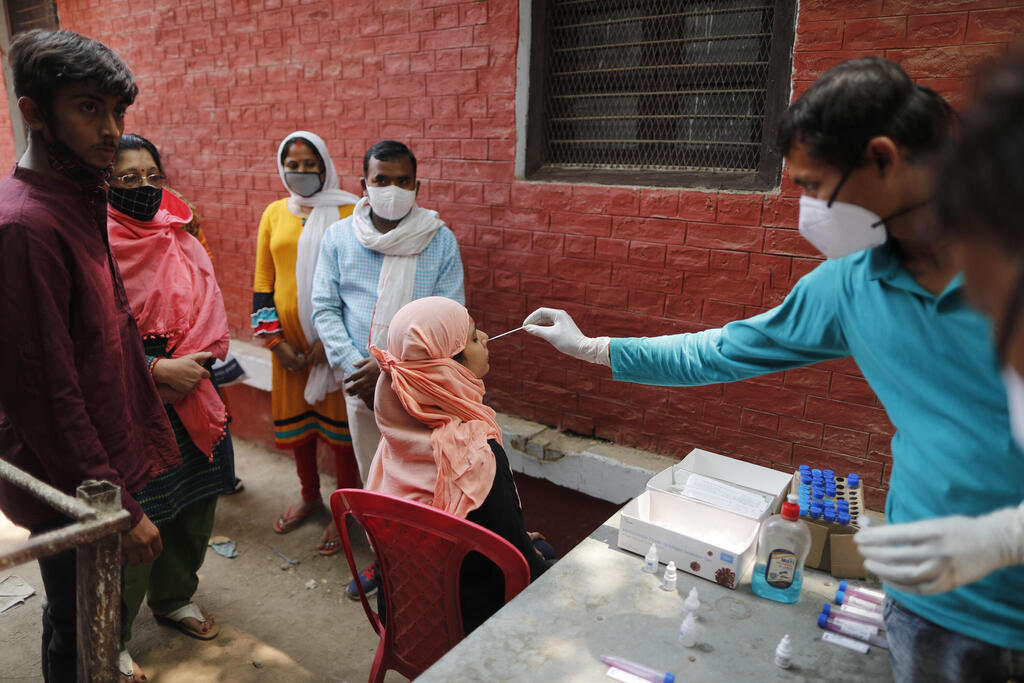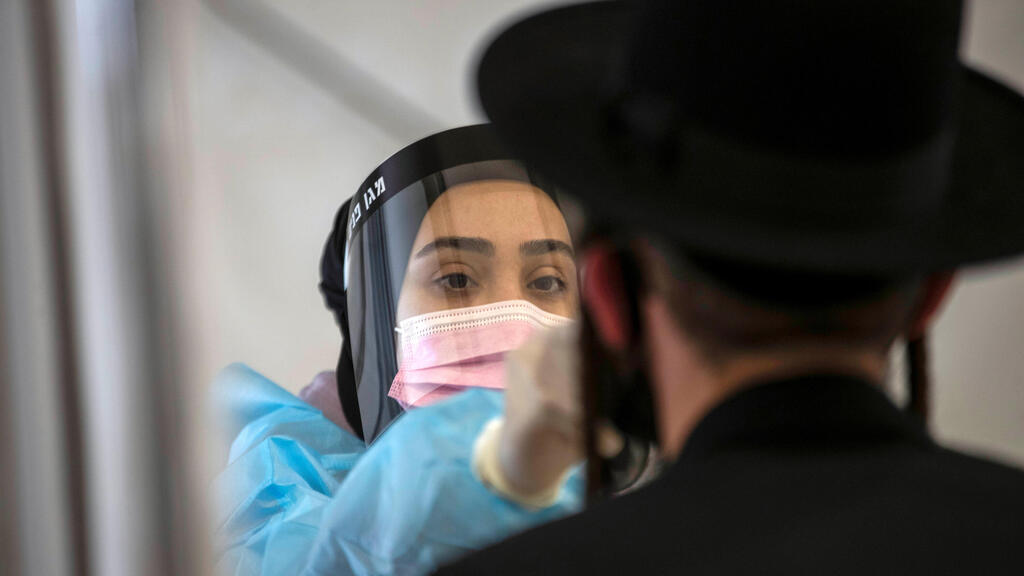Last week's Independence Day was celebrated by Israelis in a manner none could imagine just months ago. Multigenerational families gathered together, free from social distancing, as they celebrated the birthday of the country and the personal freedom to congregate and enjoy simple human contact.
Thanks to a successful vaccination drive, the number of new infections from COVID-19 continues to decline, while hospitals see fewer virus patients who require intensive care.
3 View gallery


Israelis in Tel Aviv walk without masks after the country further relaxed coronavirus regulations on Sunday
(Photo: Reuters)
On Sunday, schools resumed in-class learning for all students and Israelis were able to breathe freely outdoors after masks were no longer required in the open air.
But we must all remember that despite our newfound joy, that the situation is still fragile.
One third of the population remains susceptible to infection as they are not vaccinated or recovered from a COVID-19 infection - a worrying statistic that could lead to a renewed outbreak of the disease.
Over the past weekend, the Health Ministry announced that seven Israelis who have returned from abroad were found to have been infected with the Indian variant of COVID-19.
India is suffering a massive surge of the virus, caused at least in part by this variant that is spreading outside its borders. It has also been detected in the U.K. where a large percentage of the population has already received a coronavirus vaccine.
3 View gallery


A health worker takes a swab sample to test for COVID-19 in the northern Indian city of Prayagraj, April 17, 2021
(Photo: AP)
The South African variant is also prevalent in Israel as are other mutations of the virus that are considered dangerous for people recovering from COVID. They too could reverse some of the advantages of the vaccination drive.
Ben-Gurion International Airport remains the weak link in Israel's defenses against coronavirus.
Since the order for new arrivals to quarantine for two weeks has been lifted for those who have been vaccinated or recovered from COVID, the risk has only grown as it is still unclear to what extent they can be carriers of the disease.
3 View gallery


A new arrival to Israel undergoes testing for coronavirus at Ben-Gurion Airport earlier this month
(Photo: Reuters)
This risk is compounded by the government decision to allow non-Israelis who have received the vaccine to enter freely from the end of May.
It is only a matter of time before these unwise decisions blow up in our faces.
This is not a game. We have just one chance to ensure that our vaccination drive remains a success so that our return to normality can be long-lasting.
If we do not control our borders, we will be playing a game of Russian roulette with our public health.
Another matter not yet resolved is the acquisition of more vaccines for future use.
Israel will be competing with all other nations to obtain the necessary supply of doses and our politicians must ensure that supply at any cost.
If they fail to do so, they will be responsible for the resurgence of the virus.

